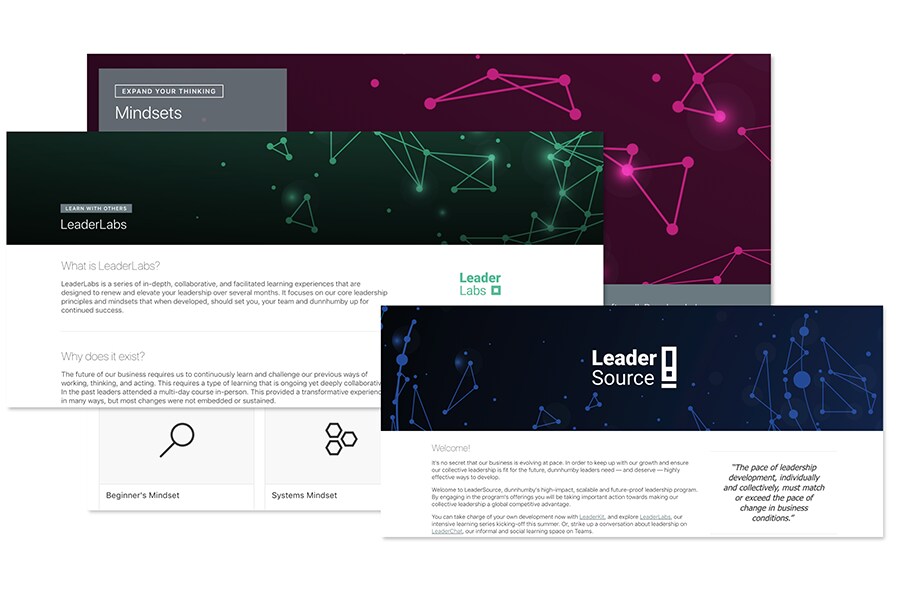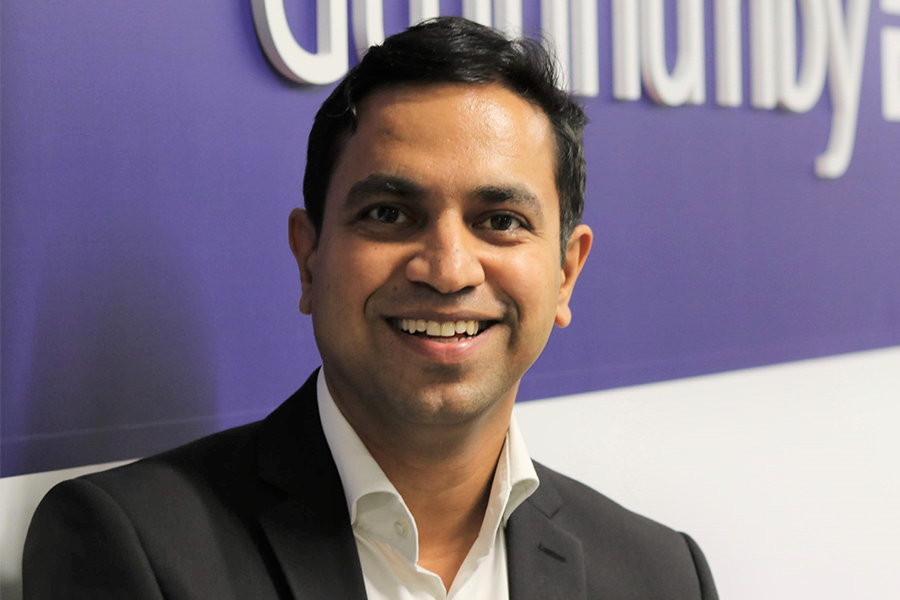Nurturing greatness in people management is analogous to nurturing a tree from a
Manoj Madhusudanan, Head of India, dunnhumby, on how it takes years to build a culture of nurturing great people managers in an organization


Great Manager Institute recently released the list of India’s top 100 Great People Managers in association with Forbes India. Now, it dives into the style of leadership of selected leaders, tapping into their pearls of wisdom in the process. Manoj Madhusudanan, Head of India, dunnhumby, speaks with Great Manager Institute about how CEOs can build a culture of greatness. Edited Excerpts:
1. This year there are 3 dunnhumby managers in our list of Top 100 Great People Managers. This is also the second consecutive year when dunnhumby features in the list. How has dunnhumby played a role in nurturing greatness in people management over the last year?
First, I’ll introduce dunnhumby. We’re the global leader in Customer Data Science, and our team works with businesses around the world to help them compete and thrive in the modern data-driven economy. Retail is one of the world’s most competitive markets, with a deluge of multi-dimensional data, and our teams enable across several industries to be Customer First.
It is a great honour for us that this is the second consecutive year that three of our managers are featuring in the coveted Top 100 list this year.
It takes years to see the results. What we see today at dunnhumby is a result of our efforts over several years. Having said that, we did shine a brighter spotlight on people in the past one year. This is best expressed in how we articulated our new Employee Value Proposition this year. The punchline is, ‘dunnhumby is not most companies. You are not most people’. We want our people to defy even the highest expectations of what you can achieve with the right balance of opportunities, support, freedom and fun.
We rolled out several initiatives globally this year to build further on this philosophy. In January 2020, we launched LeaderSource, our new leadership development programme, with the goal of making our collective leadership a global competitive advantage. 2. We know how much you focus on managers learning the art of coaching. As a manager yourself, what are the most important traits you already possess and what more traits you are currently hoping to build or improve upon?
2. We know how much you focus on managers learning the art of coaching. As a manager yourself, what are the most important traits you already possess and what more traits you are currently hoping to build or improve upon?
Personally, I believe that being empathetic has helped me most in my people leadership journey. Empathy is about being able to put yourself in other people’s shoes. As a manager, when you show genuine empathy, it creates wonders. ‘Genuine’ is the operative word here. It means being an active listener and not being in a hurry to respond and provide solutions.
I value courage highly. At dunnhumby, it is one of the values we have articulated insistently, and for me it is also an important personal value.
Of course, there are many areas where I continue to focus on to help me become a better leader. All of us have our blind spots. We must make a conscious attempt to identify these blind spots and improve our self-awareness. Your team plays an important role here. If you create an environment where they can express their feedback to you fearlessly, they can spot your improvement areas and show you the mirror. They need to trust you and feel safe opening up. It’s not an easy one however, cultivating such an equation can bring tremendous benefits to your self-development.
3. Many of the managers from dunnhumby who went through our Study showed a high degree of focus on development of their team members beyond their core domain work. Do you think such development focus leads to improvement in achievement of business objectives? If yes, how.
The answer is a big yes. When you focus on developing your team in a well-rounded manner, you are contributing to future-proofing your organisation. Tomorrow, your team will be able to do what you do today, letting you free up the time and space needed to learn and do bigger things. The business benefits from this upward push of overall capability enrichment.
However, this focus on development needs to be streamlined with a vision and purpose at the company level. It is important to have a shared language and point-of-view on what makes extraordinary leadership. This provides direction for leaders to develop towards and support each other along the way. This does not mean there should be only one "type" or "style" of leader. I do believe that focusing on developing people, yet ensuring diversity in thinking, feeling and acting is what enables healthy contribution to the business. At dunnhumby we’ve defined this in our Leadership Ethos, which is the compass for leadership and the backbone of leadership development.
4. Do you believe that business growth at dunnhumby is positively correlated to great people management and ability of managers to engage with their teams beyond professional calling?
We are social beings and not robots. What distinguishes us from intelligent machines is our feelings and emotions. Great people managers recognise that caring for people, beyond just professional calling, goes a long way in creating a highly engaged and passionate team.
This couldn’t be truer especially in the current times where most companies have been working remotely in an unprecedented manner. Office has reached home, literally. And there are blurred lines between work and life. Having that extra care and empathy, trying to understand what a team member’s personal challenges could be, and doing things differently to make their work life balance better will make a big difference to whether employees of tomorrow will want to stick to you.
5. Would you like to share some of the most exciting practices that you or any of your team members do (in the context of people management)?
There are several people management process and practices at dunnhumby that I find exciting but let me pick up a couple of examples here.
First example relates to recognitions. One of the key areas people managers often overlook is to say thank you for a job well done or recognise those people who are doing something extraordinary. Also, in any global business, it’s important that we are all able to recognise not just our colleagues in the immediate office but also across the world. To enable this, we introduced well dunn!, a global recognition portal where everyone has a profile and the ability to recognise their colleagues. There are tiers of recognition – from a simple thank you, to gifts and monetary rewards for those going the extra mile. Every recognition is linked to display of a value, thereby reinforcing value-based behaviour.
Another one comes from the world of learning and development, where we have been striving to innovate. Sometime ago, we started a Wilderness Education Programme for our managers. In this programme, we head out of town and stay in camps in some far-off jungle areas. In the days that follow, you are exposed to a variety of experiences that awaken your situational awareness and other leadership faculties. In one such exercise, your group is taken by road blindfolded to another unknown part of the jungle and asked to find your way back to the camp before sunset. It’s sheer brilliance. Nature, arguably the best teacher, forces you to face uncertainty, think on your feet and take critical decisions with limited information.
6. The readership of this magazine consists of several CEOs. What is your message to other CEOs regarding people management during the times of such crisis?
This pandemic has given business leaders an opportunity to discard some old practices and reimagine a new future. Here are some thoughts from what we have been deciphering at dunnhumby.
First, it is important to get the pulse of the organisation now and take bold steps to create a new workplace that is most suitable for you. At dunnhumby, we conducted an internal global survey on the future ways of working. The insights we got from the survey were eye-openers. Remote working is here to stay in some form or the other, but people also are craving for the social cohesion they enjoyed in office. We are now following up on these insights to create a reimagined workplace of the future.
Second, recognise that people’s developmental needs are evolving rapidly today. With remote working, skills such as communication, time management and emotional intelligence have become even more critical. For example, many of us find it hard to reach out and express effectively with colleagues in a remote setting – something that could be vital for career success. We need to bridge the gap and equip people with the necessary skills.
Third, we need to redesign some of the key people processes at a fundamental level. For example, you need to have a mechanism to measure people’s performance with an outcome-based approach, rather than based on efforts. Efforts may not be visible remotely, but the outcome is. It’s easier said than done. Organisations often struggle to get meaningful key performance indicators (KPIs) that measure performance objectively based on output.
In summary, you need to create the right balance and metrics that works best for your organisation, keeping people at the centre. I have a simple rule when it comes to people. If your people are happy, they will be more engaged and productive, and they will ensure your customers are happy. So, start with people.
Disclaimer: The views, suggestions and opinions expressed here are the sole responsibility of the experts. No Forbes India journalist was involved in the writing and production of this article.
First Published: Nov 11, 2020, 11:00
Subscribe Now